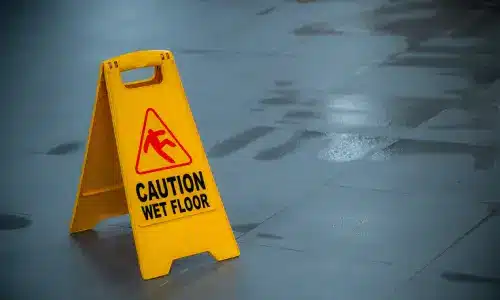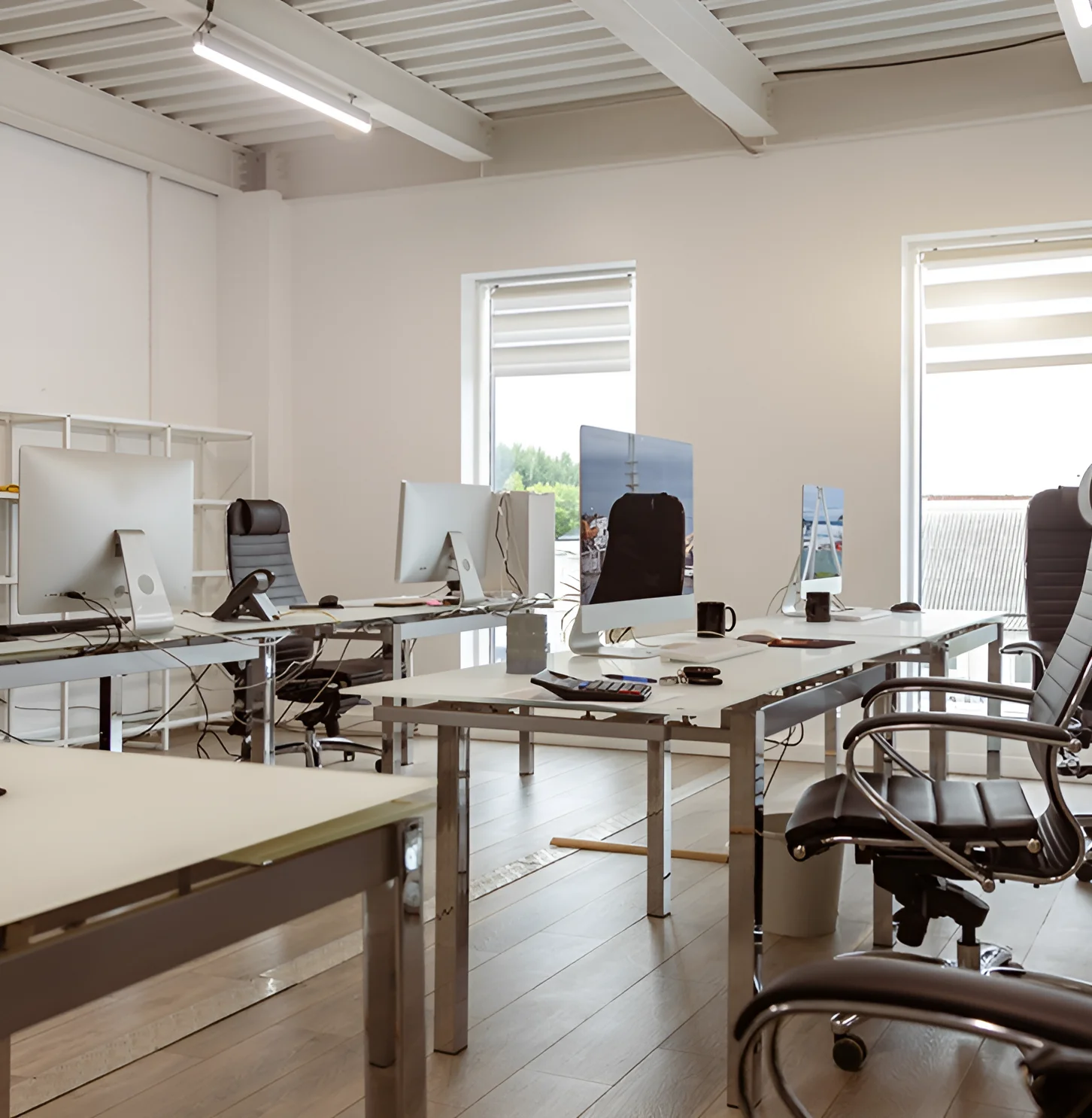
Here at the CEO Lawyer Personal Injury Law Firm, we understand the frustration and physical challenges that follow a slip and fall accident. Our dedicated team of South Carolina Slip and Fall Accident Lawyers will fight tirelessly to ensure you receive the compensation you deserve for your medical bills, lost wages, and pain and suffering.
Why Choose a South Carolina Slip and Fall Accident Attorney for Your Slip and Fall Accident Claim?
- Compassionate Support: We understand the physical and emotional toll a slip and fall accident can take. Our team will be by your side throughout the legal process, providing guidance and support every step of the way.
- Proven Track Record: Our skilled personal injury attorneys in South Carolina have a well-deserved reputation for securing maximum compensation for our slip-and-fall accident clients.
- Thorough Investigation: We’ll meticulously investigate the cause of your fall, gather evidence, and identify the responsible party.
- Aggressive Negotiation: Our team will negotiate aggressively with insurance companies to ensure you receive a fair settlement.
- Client-Centered Approach: We treat every client with respect and keep you informed of all developments in your case.
Common Hazards That Lead to Slip and Fall Accidents
Taking a tumble can happen anywhere, but some locations and situations are more prone to slip-and-fall accidents than others. Let’s explore some common hazards to watch out for:
1. Slippery Surfaces
- Spills and Leaks: Spilled liquids or food in grocery stores, restaurants, or even on public sidewalks can create treacherous walking conditions. Property owners have a responsibility to clean up spills promptly or place proper warning signs.
- Wet Floors: Recently mopped floors, tracked-in rainwater or condensation from air conditioners can make surfaces slick. Be cautious in areas with wet floor signs and walk with extra care.
- Ice and Snow: Winter weather creates a haven for slip and fall hazards. Property owners are responsible for taking reasonable measures to remove snow and ice from walkways or apply salt or sand for traction.
2. Uneven Surfaces
- Cracked or Broken Pavement: Uneven sidewalks, parking lots, or walkways with protruding cracks or tree roots can cause stumbles and falls. Property owners should maintain their premises in a reasonably safe condition and repair uneven surfaces promptly.
- Changes in Flooring Level: Transitions between different flooring materials, like tile to carpet, or poorly constructed steps can be tripping hazards. Be mindful of changes in elevation, and watch your step.
- Loose Carpeting or Rugs: Ripped, bunched-up, or loose carpeting or rugs can easily snag a foot and lead to a fall. Property owners should ensure all rugs and mats lie flat and secure.
3. Poor Lighting
- Dimly Lit Stairwells: Stairwells with inadequate lighting can make it difficult to see potential hazards like uneven steps or missing handrails. Property owners have to ensure proper illumination in stairways and walkways.
- Dark Parking Lots: Poorly lit parking lots can hide uneven pavement, potholes, or other trip hazards. Be extra cautious in dimly lit areas and park in well-lit sections whenever possible.
4. Obstructions and Debris
- Cluttered Walkways: Items left in walkways, like merchandise in stores, boxes in hallways, or scattered toys in daycare centers, can create tripping hazards. Property owners and managers should keep walkways clear and clutter-free.
- Debris on the Ground: Scattered debris like fallen leaves, spilled coffee cups, or even misplaced toys can cause unexpected slip hazards. Property owners and managers should regularly sweep and clean common areas.
5. Inadequate Handrails
- Missing or Broken Handrails: Handrails are essential for providing support on stairs and inclines. Missing or broken handrails significantly increase the risk of falls, especially for elderly individuals or those with mobility limitations.
- Improperly Constructed Handrails: Handrails that are too low, too high, or not securely fastened can be more of a hindrance than a help. Property owners are responsible for ensuring handrails meet safety standards and provide adequate support.
Remember, a little caution can go a long way in preventing slip-and-fall accidents. Be aware of your surroundings, watch out for these common hazards, and don’t hesitate to report unsafe conditions to the appropriate authorities.
Slip and Fall Accidents Lead to Multiple Types of Injuries
A seemingly innocuous slip and fall can have serious consequences. The force of the impact can cause a variety of injuries, ranging from minor bumps and bruises to life-altering conditions.
Common Injuries From Slip and Fall Accidents
- Soft Tissue Injuries: These are the most common injuries resulting from slips and falls. Strains, sprains, and contusions (bruises) to muscles, ligaments, and tendons can cause significant pain, swelling, and limited mobility.
- Fractures: Falls can cause fractures in bones, especially in the wrist, arm, hip, and ankle. These injuries often require surgery, extensive rehabilitation, and significant recovery time. In severe cases, fractures can lead to permanent mobility limitations.
- Head Injuries: Striking your head during a fall can result in a concussion, which can cause headaches, dizziness, nausea, and even memory problems. More serious head injuries can lead to bleeding in the brain or long-term neurological complications.
- Back and Spinal Cord Injuries: Falls can cause back pain, herniated discs, or even spinal cord injuries. These injuries can be incredibly debilitating, resulting in chronic pain, nerve damage, and even paralysis in severe cases.
- Hip Injuries: Hip fractures are a major concern for elderly individuals who fall. These injuries can lead to hospitalization, surgery, and difficulty walking independently. The recovery process can be lengthy and require significant lifestyle changes.
Long-Term Effects of Slip and Fall Injuries
The impact of a slip and fall accident can extend far beyond the initial injury. Here are some potential long-term consequences:
- Chronic Pain: Many slip and fall injuries can lead to chronic pain, which can significantly impact a person’s quality of life.
- Loss of Mobility: Depending on the severity of the injury, a fall might limit a person’s ability to walk, climb stairs, or perform daily activities.
- Emotional Distress: The physical limitations and pain caused by a slip and fall accident can lead to anxiety, depression, and post-traumatic stress disorder (PTSD).
- Financial Strain: Medical bills, lost wages due to missed work, and ongoing physical therapy can create a significant financial burden for accident victims.
Importance of Seeking Medical Attention After a Slip and Fall
Even if you think your injuries are minor, it’s crucial to seek medical attention after a slip and fall accident. A doctor can properly diagnose your injuries, document their severity, and create a treatment plan.
This medical documentation will be vital evidence if you decide to pursue a legal claim.
Visitor Status in South Carolina Slip and Fall Accident Cases
In South Carolina, the type of visitor you are determines the owner’s responsibility for your safety. We can help you understand your rights and fight for fair compensation.
Premises liability law in South Carolina is determined by the concept of “how visitor status affects premises liability in South Carolina.” This classification determines the duty of care a property owner owes to a visitor and the likelihood of holding them liable for a slip and fall accident.
Here’s a breakdown of the different visitor statuses and how they impact your case.
- Welcome Guests (Invitees): Think store customers or restaurant patrons. Property owners have a high duty of care to ensure a safe environment. This means regular inspections, fixing hazards, and warning you about any known dangers.
- Social Guests (Licensees): This covers friends visiting your home or someone taking a shortcut. The owner’s responsibility is lower. They generally shouldn’t intentionally harm you and should warn you about hidden dangers they know about.
- Trespassers: People with no legal right to be on the property (like trespassers) typically have minimal protection. However, owners can’t intentionally injure them.
How Visitor Status Affects Your Slip and Fall Claim
Determining your visitor status is crucial in a slip and fall accident case. Here’s how it can impact your claim:
- Invitees: As an invitee, you have a stronger case because the property owner had a higher duty of care to ensure your safety. You’ll need to show the owner knew or should have known about the dangerous condition and failed to take reasonable steps to fix it.
- Licensees and Trespassers: For licensees and trespassers, the burden of proof is higher. You’ll need to demonstrate the property owner intentionally caused the dangerous condition or acted with reckless disregard for your safety. This can be more challenging to prove.
An experienced South Carolina Slip and Fall Accident Lawyer from the CEO Lawyer Personal Injury Law Firm can assess your specific situation, determine your visitor status, and build a strong case based on the appropriate duty of care.
Common Defense Tactics for Property Owners in Slip and Fall Cases
Property owners and their insurance companies will often employ various tactics to minimize their liability in slip-and-fall accident cases. Here are some common defense strategies to be aware of:
- Comparative Negligence: South Carolina follows a comparative negligence law. This means if you’re found partially responsible for your fall, your compensation will be reduced by your percentage of fault. Property owners may try to argue you were distracted, not paying attention, or wearing improper footwear.
- Open and Obvious Doctrine: Property owners may claim the dangerous condition was “open and obvious,” meaning a reasonable person should have noticed and avoided it. This defense can be countered by arguing the condition was unreasonably dangerous or the property owner failed to warn visitors about it.
- Lack of Knowledge: Property owners may argue they didn’t know about the dangerous condition and couldn’t have reasonably prevented the accident. However, an attorney can investigate how long the condition likely existed and whether the property owner should have discovered it through regular inspections.
- Shortened Notice: In some cases, property owners may claim they didn’t have enough time to rectify the dangerous condition before the accident occurred. However, this defense depends on how long the condition likely existed and the severity of the hazard.
Our South Carolina Slip-and-Fall Accident Law Firm Helps Protect Your Rights Against Property Owner Defenses
A slip-and-fall accident can turn your world upside down. Medical bills pile up, lost wages strain your finances, and the pain and suffering can be overwhelming.
If you’ve been injured in a slip-and-fall accident in South Carolina caused by someone else’s negligence, you don’t have to go through this alone.
Moreover, do not let property owners downplay your injuries or deflect blame. The South Carolina Slip and Fall Accident Lawyers at the CEO Lawyer Personal Injury Law Firm understand these defense tactics and are skilled at dismantling them.
We’ll gather evidence, investigate the cause of the accident, and fight to hold the negligent party accountable.
Our South Carolina Slip and Fall Accident Lawyers are skilled negotiators who will aggressively pursue a fair settlement with the property owner’s insurance company. However, if a fair settlement isn’t reached, we’re prepared to take your case to court and fight for the compensation you deserve.
Building a Strong Slip and Fall Accident Claim
To recover compensation after a slip and fall accident, we’ll need to establish the following:
- Duty of Care: The property owner owed you a duty to maintain a safe environment based on your visitor status (discussed previously).
- Breach of Duty: The property owner failed to uphold their duty of care by neglecting to fix a hazard, failing to warn of a dangerous condition, or creating a dangerous condition themselves.
- Causation: The property owner’s breach of duty directly caused your slip and fall accident.
- Damages: You suffered damages due to the accident, such as medical bills, lost wages, pain and suffering, and potential property damage (like a broken phone in the fall).
Evidence to Strengthen Your Case
Our team will gather critical evidence to support your claim, including:
- Accident Report: If the accident occurred on commercial property, a copy of the accident report you filed with the manager or owner.
- Medical Records: Documentation of your injuries and treatment from medical professionals.
- Photographs: Photos of the scene of the accident, the hazard that caused your fall, and your visible injuries (once it’s safe to do so).
- Witness Statements: Statements from anyone who witnessed the accident can provide valuable testimony.
- Security Camera Footage: If available, security camera footage from the property might capture the fall or the dangerous condition.
Types of Compensation Recoverable in a Slip and Fall Case
A successful slip and fall accident claim can help you recover compensation for various damages, including:
- Medical Expenses: This covers past, present, and future medical bills related to your injuries.
- Lost Wages: Compensation for wages you lost due to missing work because of your injuries.
- Lost Earning Capacity: If your injuries limit your ability to work in the future, you may be compensated for lost earnings.
- Pain and Suffering: Compensation for the physical and emotional pain you endured due to the accident.
- Property Damage: Reimbursement for any property damaged in the fall.
South Carolina Slip and Fall FAQs
Slip and fall accidents in South Carolina can be as common as sweet tea on a hot summer day. However, navigating the legal side of these falls can feel anything but refreshing.
Let’s untangle some frequently asked questions that might be tripping you up.
I Slipped and Fell at a Friend’s House. Can I Still Sue Them?
South Carolina law South Carolina law distinguishes between types of visitors, and your friend’s duty of care depends on why you were there.
- Invited Guest: As a social guest (licensee), you can only sue if your friend knew about a hidden danger and didn’t warn you or if their actions (like spilling a drink and not cleaning it up) caused you to fall.
- Helping Out: If you were helping your friend with a chore (invited licensee), and fell due to a dangerous condition on the property (like a broken step), you might have a stronger case.
What if the Slip and Fall Happened at a Business That Just Opened?
South Carolina law holds businesses to a higher standard of care than private residences. New businesses have a responsibility to ensure their premises are safe for customers from day one.
This means they can’t use being newly opened as an excuse for a hazardous condition that caused your fall.
Can I Be Blamed if I Was Using My Phone While Walking and Fell?
South Carolina follows a comparative negligence system. This means the court will consider how much your actions (like cell phone distraction) contributed to the accident.
Even if you were distracted, if the property owner’s negligence was the main cause of the fall, you can still recover damages, but the amount might be reduced based on your percentage of fault.
How Long Do I Have to File a Slip and Fall Lawsuit in South Carolina?
The statute of limitations for personal injury lawsuits in South Carolina is generally South Carolina’s statute of limitations for personal injury lawsuits from the date of the accident. Don’t wait too long to seek legal counsel; evidence can fade over time.
What if I’m Not Sure if I Have a Case?
If you’re unsure about the details of your slip and fall accident and whether you have a case, contacting an experienced South Carolina Slip and Fall Attorney is crucial. A free consultation with the CEO Lawyer Personal Injury Law Firm can help you understand your legal rights and options.
Slip and fall accidents can have serious consequences, and navigating the legal aspects can be overwhelming. At the CEO Lawyer Personal Injury Law Firm, our team of South Carolina Slip and Fall Accident Lawyers is here to help.
Ali Awad, the CEO Lawyer, leads a results-driven team known for aggressive advocacy and dedication to client success. We’ll handle the legal complexities and fight to ensure you receive the compensation you deserve.
Contact the CEO Lawyer Personal Injury Law Firm today for a free consultation. Call us at (864) 664-3865 or contact us today to schedule a consultation. We’ll help you get back on your feet, one legal step at a time.





